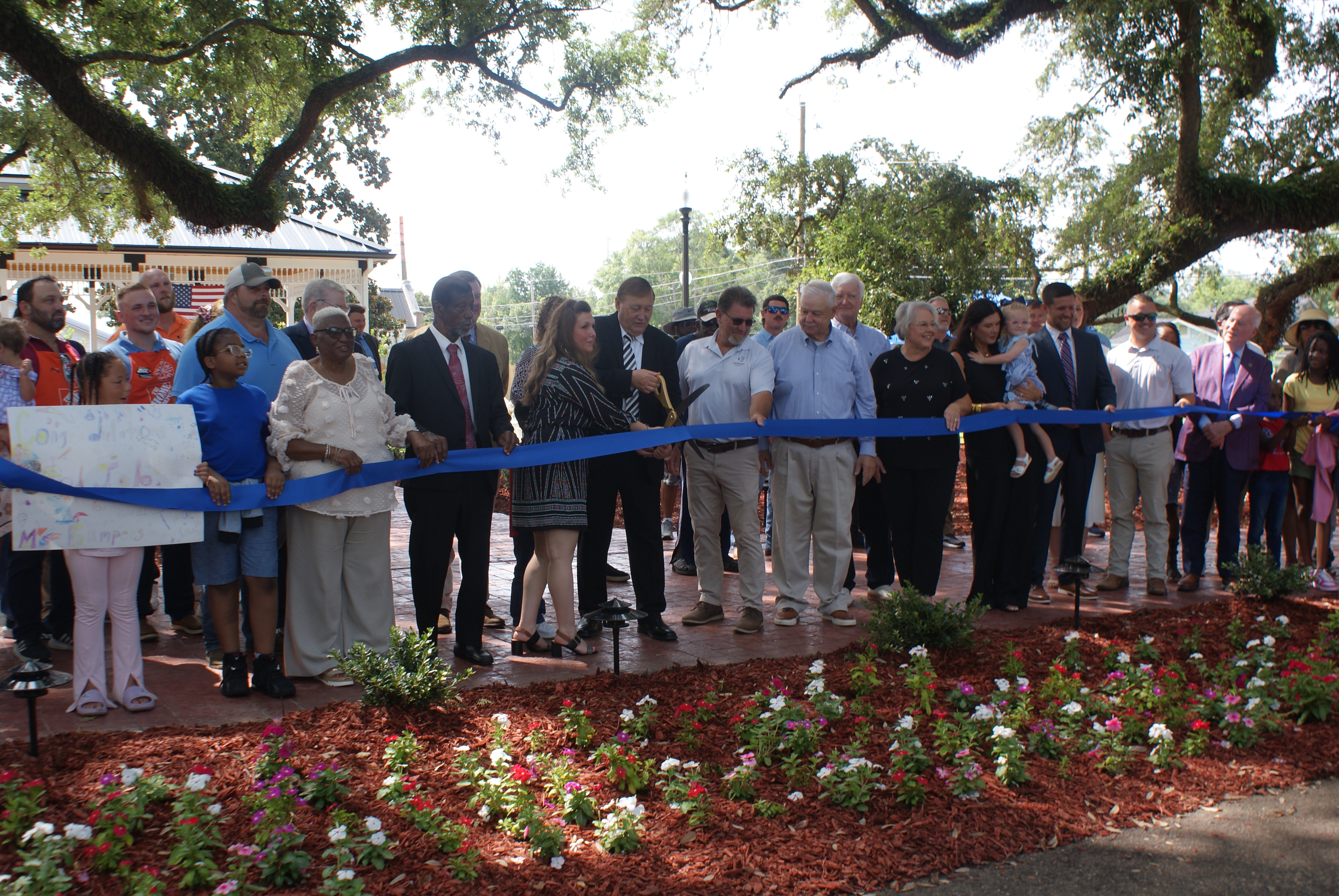Some outstanding native perennials for fall planting projects
Published 7:00 am Wednesday, September 23, 2020




By Pat Drackett
Crosby Arboretum Director
We often refer to fall as being a prime season for planting woody species – trees and shrubs – but it is also a great time to plant native perennials. While we may think of spring being the traditional time to plant flowers, planting perennials in the fall will allow them to benefit from the warm periods in the fall and winter in our coastal gardens, which gives them ample time to become established before spring.
Right now, the Arboretum’s Savanna Exhibit is ablaze with Liatris (called blazing star or gayfeather), swamp sunflower (Helianthus), and native Asters. We are excited to be growing Liatris from seed collected from our savanna, along with a number of other high-performing native perennials, for our fall native plant sale on Friday and Saturday, October 16 and 17.
One late-blooming native perennial we will have at the sale that you might see in coastal natural areas is cardinal flower (Lobelia cardinalis). Its scarlet flower spikes are highly attractive to hummingbirds. I’ve found it blooming along the Pascagoula River in the Ward Bayou Wildlife Management Area near Vancleave in Jackson County, a beautiful natural area visited by avid birders and native plant appreciators alike.
Also at our sale, you will find Asclepias tuberosa, a species of orange-blooming native Mississippi milkweed. It has been very popular for decades with gardeners and is known as butterfly weed. This is a colonizing species, and therefore more useful to monarch butterflies, which grows in sunny, dry well-drained soils.
White-flowering Gaura will be available at the fall sale. Gaura is a drought-tolerant species that maintains a rosette of green leaves throughout the winter. It’s a great plant to use at a mailbox or other location where it doesn’t receive regular watering. We’re also growing Stokes aster for the sale, another top-performer with a green winter rosette. This perennial has attractive purple blooms and grows in sunny or shady locations, in moist or dry soils.
The delicate plumes of muhly grass will brighten your garden in the fall. The beautiful, feathery purple-pink spikes appear in October. It is found in dry, sandy, and exposed sites, as well as in wet savannas and marshes, and is a good choice for a site with poor soils. Muhly grass is tolerant of salt spray and deer browsing. Plant it in combination with flat-topped perennials such as black-eyed Susan and purple coneflower.
Purple coneflower will also be available at our fall plant sale. While it’s not found in our exhibits as it’s not suited to wet pine savannas, it’s certainly a popular native perennial for wildflower gardens. Nine species of Echinacea are native to the United States, and breeding programs have developed an incredibly wide variety of cultivars of all sizes and colors.
Coneflowers are excellent choices for Southern gardens because they like our hot and sunny, humid conditions. Although they are drought tolerant and will grow in poor soils, they will perform better in your garden if you provide them with a rich, well-drained soil. Their flowers provide a nectar source for a variety of insects and are a food source for songbirds that feast on its seeds.
Visit the Mississippi State University Extension Service website at http://extension.msstate.edu/ to view or download the publication “Purple Coneflowers for the Mississippi Gardener” on coneflower cultivation, propagation and their landscape uses.
In lieu of our Bugfest event this year at the Crosby Arboretum, we are offering several insect programs Friday and Saturday, September 25 and 26, from 10 a.m. to noon. Two sessions will be offered each day, with a limit of 15 persons. Participants must call 601-799-2311 to register. One session will be virtual content delivered in our program room by Mississippi State University Extension Entomologist Dr. John Guyton, who coordinates the summer MSU Bug and Plant Camps. The second program session will be held on the Pinecote Pavilion.
When registering for the insect programs you will automatically be registered for both the virtual and in-person sessions. If groups have reached capacity, no walk-ins will be allowed, but you are welcome to walk the grounds to collect and/or look for bugs. Scavenger lists, handouts, and crafts activities will be available. Masks are required for program sessions and social distancing will be practiced while in a session. Members are $5 and non-members are $10. Memberships are currently half price.
For more information on the Arboretum, visit www.crosbyarboretum.msstate.edu. We are open Wednesday through Sunday and located in Picayune, I-59 Exit 4, at 370 Ridge Road. Exit gates are closed at 4:30 p.m. The business office is open 9 a.m. to 5 p.m.









